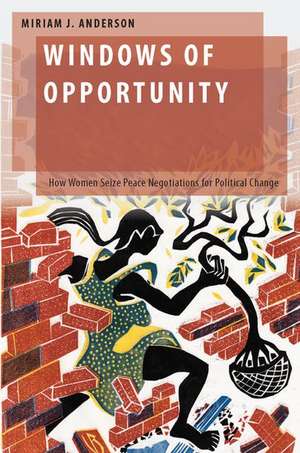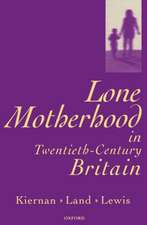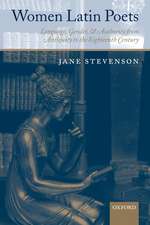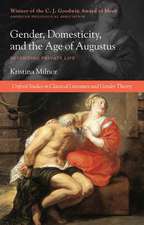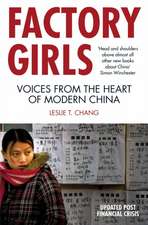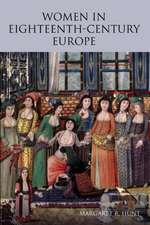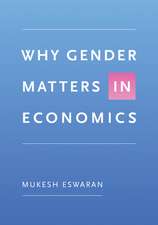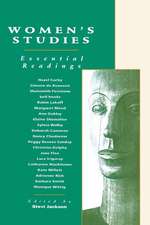Windows of Opportunity: How Women Seize Peace Negotiations for Political Change: Oxford Studies in Gender and International Relations
Autor Miriam J. Andersonen Limba Engleză Hardback – 28 ian 2016
Din seria Oxford Studies in Gender and International Relations
- 27%
 Preț: 370.37 lei
Preț: 370.37 lei - 23%
 Preț: 453.86 lei
Preț: 453.86 lei - 19%
 Preț: 617.59 lei
Preț: 617.59 lei - 14%
 Preț: 199.10 lei
Preț: 199.10 lei - 24%
 Preț: 370.87 lei
Preț: 370.87 lei - 27%
 Preț: 426.14 lei
Preț: 426.14 lei - 7%
 Preț: 216.34 lei
Preț: 216.34 lei - 16%
 Preț: 491.33 lei
Preț: 491.33 lei -
 Preț: 235.79 lei
Preț: 235.79 lei - 19%
 Preț: 127.24 lei
Preț: 127.24 lei - 19%
 Preț: 177.77 lei
Preț: 177.77 lei -
 Preț: 258.50 lei
Preț: 258.50 lei - 10%
 Preț: 439.09 lei
Preț: 439.09 lei - 9%
 Preț: 480.59 lei
Preț: 480.59 lei - 18%
 Preț: 345.75 lei
Preț: 345.75 lei - 13%
 Preț: 135.12 lei
Preț: 135.12 lei - 27%
 Preț: 402.03 lei
Preț: 402.03 lei - 15%
 Preț: 277.35 lei
Preț: 277.35 lei - 19%
 Preț: 198.22 lei
Preț: 198.22 lei -
 Preț: 287.11 lei
Preț: 287.11 lei - 14%
 Preț: 278.91 lei
Preț: 278.91 lei -
 Preț: 265.32 lei
Preț: 265.32 lei - 12%
 Preț: 215.78 lei
Preț: 215.78 lei - 26%
 Preț: 582.53 lei
Preț: 582.53 lei - 14%
 Preț: 177.77 lei
Preț: 177.77 lei - 20%
 Preț: 279.41 lei
Preț: 279.41 lei - 30%
 Preț: 612.43 lei
Preț: 612.43 lei - 23%
 Preț: 183.17 lei
Preț: 183.17 lei - 30%
 Preț: 492.40 lei
Preț: 492.40 lei - 11%
 Preț: 222.30 lei
Preț: 222.30 lei - 18%
 Preț: 225.04 lei
Preț: 225.04 lei - 30%
 Preț: 552.22 lei
Preț: 552.22 lei - 30%
 Preț: 494.84 lei
Preț: 494.84 lei - 30%
 Preț: 581.39 lei
Preț: 581.39 lei - 30%
 Preț: 521.67 lei
Preț: 521.67 lei - 23%
 Preț: 163.62 lei
Preț: 163.62 lei - 30%
 Preț: 548.28 lei
Preț: 548.28 lei - 11%
 Preț: 400.01 lei
Preț: 400.01 lei
Preț: 491.59 lei
Preț vechi: 705.01 lei
-30% Nou
Puncte Express: 737
Preț estimativ în valută:
94.07€ • 100.59$ • 78.43£
94.07€ • 100.59$ • 78.43£
Carte tipărită la comandă
Livrare economică 07-14 aprilie
Preluare comenzi: 021 569.72.76
Specificații
ISBN-13: 9780190239534
ISBN-10: 0190239530
Pagini: 232
Dimensiuni: 236 x 157 x 23 mm
Greutate: 0.43 kg
Editura: Oxford University Press
Colecția OUP USA
Seria Oxford Studies in Gender and International Relations
Locul publicării:New York, United States
ISBN-10: 0190239530
Pagini: 232
Dimensiuni: 236 x 157 x 23 mm
Greutate: 0.43 kg
Editura: Oxford University Press
Colecția OUP USA
Seria Oxford Studies in Gender and International Relations
Locul publicării:New York, United States
Recenzii
History is made by choices. Participation of women in the peace process was not part of our shared understanding of history; now through this very compelling work of Miriam J. Anderson it is. Women are not only participating in processes: they are contributing significantly and these contributions are measured. New tools allow us to understand these trends precisely. Anderson contributes greatly to scholarship and methodology. This is a must-read for anyone who is interested in both gender and peace.
Windows of Opportunity is a systematic and scholarly analysis of womens experiences in seeking to access the negotiating table, and to get their rights on the agenda, at the point of peace agreements. Using both quantitative and qualitative methods, it reviews 195 peace agreements signed between 1975 and 2011, as well as in-depth analyses of relative success in Burundi and Northern Ireland, and relative failure in Macedonia. It brings into sharp focus the importance of womens local activism working in alliance with international networks and as such offers practical lessons for policy-makers in the future.
Windows of Opportunity is an excellent and welcome contribution to the study of women, war and peace. Through an examination of three case studies and quantitative analysis of 195 peace agreements, Anderson convincingly demonstrates what factors mattered (and in what ways) for the inclusion of womens rights and references to women in contemporary peace agreements, namely key actors (local, regional and international feminist advocacy groups), strategies, and international norm diffusion. In light of the international communitys commitment to the women, peace and security agenda, this book provides a timely blueprint for promoting womens rights and gender equality in peace negotiations and the agreements that are concluded.
In Windows of Opportunity, Miriam Anderson unpacks the means by which language pertinent to women's rights is incorporated into peace agreements worldwide. The book makes a number of contributions in improving our empirical and theoretical understandings of transnational advocacy networks (TANs); the women, peace and security agenda; and peace processes. It is both rigorous in drawing inferences and accessible in revealing the practical applications. It should be considered as essential reading for the growing communities of scholars and students studying international norms diffusion and the role of gender in international relations.
Windows of Opportunity is a systematic and scholarly analysis of womens experiences in seeking to access the negotiating table, and to get their rights on the agenda, at the point of peace agreements. Using both quantitative and qualitative methods, it reviews 195 peace agreements signed between 1975 and 2011, as well as in-depth analyses of relative success in Burundi and Northern Ireland, and relative failure in Macedonia. It brings into sharp focus the importance of womens local activism working in alliance with international networks and as such offers practical lessons for policy-makers in the future.
Windows of Opportunity is an excellent and welcome contribution to the study of women, war and peace. Through an examination of three case studies and quantitative analysis of 195 peace agreements, Anderson convincingly demonstrates what factors mattered (and in what ways) for the inclusion of womens rights and references to women in contemporary peace agreements, namely key actors (local, regional and international feminist advocacy groups), strategies, and international norm diffusion. In light of the international communitys commitment to the women, peace and security agenda, this book provides a timely blueprint for promoting womens rights and gender equality in peace negotiations and the agreements that are concluded.
In Windows of Opportunity, Miriam Anderson unpacks the means by which language pertinent to women's rights is incorporated into peace agreements worldwide. The book makes a number of contributions in improving our empirical and theoretical understandings of transnational advocacy networks (TANs); the women, peace and security agenda; and peace processes. It is both rigorous in drawing inferences and accessible in revealing the practical applications. It should be considered as essential reading for the growing communities of scholars and students studying international norms diffusion and the role of gender in international relations.
Notă biografică
Miriam Anderson is Assistant Professor in the Department of Politics and Public Administration at Ryerson University in Toronto, Canada.
